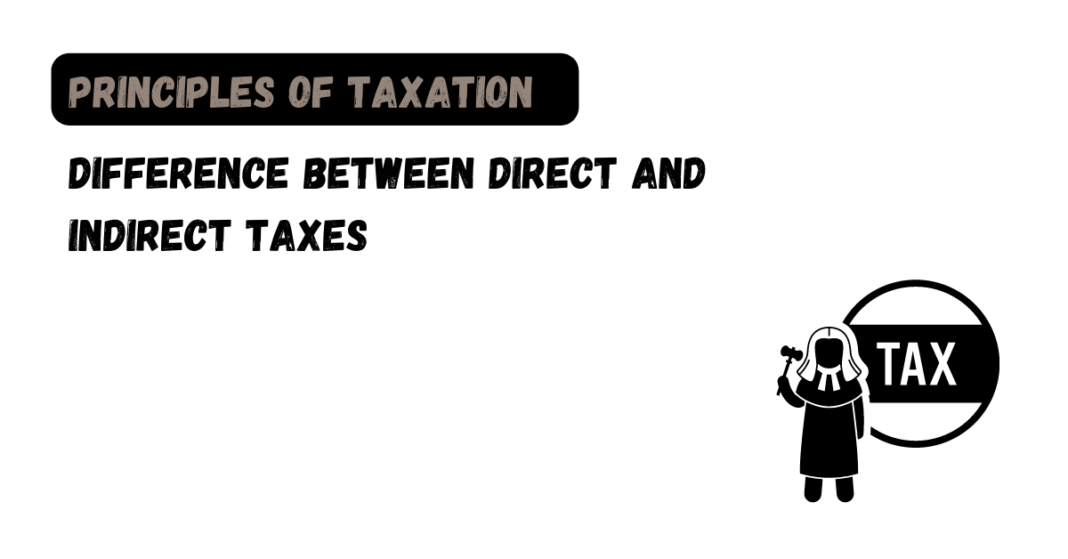Direct Taxes
Direct taxes are the taxes that you pay directly to the government based on your income, wealth, or property. These taxes are calculated and collected from individuals or entities by the government. You are responsible for paying these taxes, and they cannot be shifted to someone else.
Examples: The income tax you pay on your salary, the property tax you pay for owning a house, and the inheritance tax you may owe when you receive an inheritance.
Indirect Taxes
Indirect taxes are the taxes that you indirectly pay when you buy goods or services. These taxes are not collected directly from you by the government but are included in the prices of the goods or services you purchase. The businesses that sell these goods or services collect the taxes from you and pass them on to the government. The burden of these taxes is shifted to the consumers.
Examples: The sales tax you pay when you buy clothes or electronics, the value-added tax (VAT) included in the price of items, and the excise tax on certain goods like alcohol or tobacco.
Difference between Direct and Indirect Taxes
| BASIS FOR COMPARISON | DIRECT TAXES | INDIRECT TAXES |
|---|---|---|
| Definition | Levied directly on individuals or entities. | Imposed on goods and services. |
| Incidence | The tax liability falls directly on the taxpayer. | The tax burden can be shifted to another party, such as consumers. |
| Relationship to Income | Based on the income, wealth, or property of the taxpayer. | Based on the consumption or expenditure of goods and services. |
| Progressivity | Often progressive, meaning that the tax rate increases with higher income or wealth. | Often regressive, as they may place a higher burden on individuals with lower income. |
| Collection Mechanism | Tax is directly collected from the taxpayer by the government authorities. | Tax is collected by intermediaries (such as manufacturers, suppliers, or retailers) and passed on to the consumer through the price of goods or services. |
| Economic Impact | Can have a direct impact on the disposable income and spending power of individuals or entities. | Can influence consumer behavior, pricing, and market dynamics due to the tax being included in the prices of goods and services. |
| Examples | Personal income tax, corporate tax, capital gains tax, property tax, inheritance tax. | Value Added Tax (VAT), sales tax, excise tax, customs duties, service tax. |





